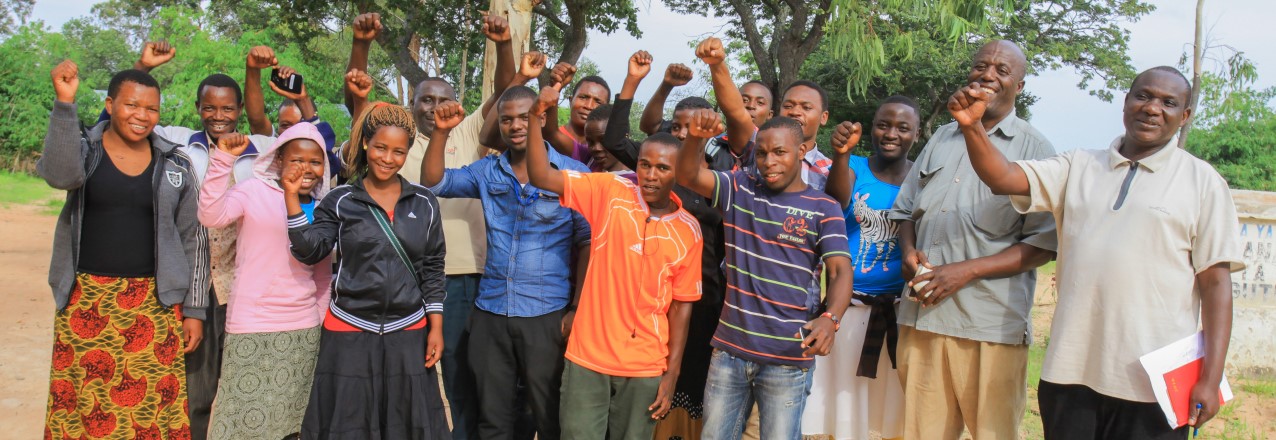Countries with good governance, democratic norms and institutions, and respect for human rights help to promote dignity, political and social equality, and essential freedoms including those of speech, association, and religion. They also historically have lower rates of corruption and fewer occurrences of atrocities such as mass murder and famine, relative to autocratic states. The U.S. Agency for International Development’s (USAID) Center of Excellence on Democracy, Human Rights and Governance (DRG) works with USAID Missions in 90 countries to conduct research and develop initiatives and programming for local partners to demonstrate the value of democracy, advance policy changes in support of democratic governance systems, and strengthen democratic institutions and human rights. Cloudburst is working with USAID in several DRG center focus countries to support these goals.
In Armenia, our team authored three evidence reviews to better understand the changing country context following the 2018 Velvet Revolution, a non-violent protest movement that led to the resignation of the country’s leader who had attempted to stay in power by changing the nation’s constitution. Now, our team is conducting field assessments that gather evidence on the influence that both public and non-governmental institutions, including media and civil society organizations, have on governance systems, transparency, and the rule of law in post-revolution Armenia. These assessments will seek to identify where systemic corruption occurs and recommend ways to address it over the next 5 years.
In Zimbabwe, political parties are the primary way citizens can express political preferences and hold elected officials accountable, making political parties a critical component to democratic systems. The Cloudburst team is conducting an analysis of the nation’s political party system as a whole to understand how political parties are influenced by the will of decision makers within the party, the formal and informal systems through which parties operate, and the capacity–financial and interpersonal–that political parties have to pursue their goals. Understanding how political parties operate and the stances of the major parties can allow interventions in support of a competitive multi-party democratic system.
Our research also includes synthesizing evidence on transnational labor movements and platform workers to understand the challenges and opportunities that workers face in interconnected economies. Values and consumer preferences, such as those regarding fair and equitable treatment of workers and respect for basic human rights, may be embedded in the transnational investments of global firms. However, the abilities of workers to democratically organize is shrinking in many nations. This research portfolio seeks to understand the effects of transnational campaigns to support freedom of association. It also includes case studies of online platforms across India, South Africa, and Mexico to identify best practices that encourage equity in global labor.
Throughout this work, Cloudburst will offer on-site and remote training and technical assistance to build capacity of in-country partners. These capabilities include assistance with performance analysis; data-driven strategic plan development; facilitating local data validity review and data cleaning; training of enumerators and on-site field management for data collection; training on research, evaluation, and monitoring methodologies; and building and managing online data storage platforms.
For all our research projects, Cloudburst works to bridge research and practice by sharing reflections on the results of our research, evaluation, and monitoring with multiple audiences–including donors, practitioners, and fellow researchers. This is a core tenet of our research framework. Our team devises innovative methods to interpret, visualize, and communicate key findings from research and data in a manner that ensures research will be accessible for a broader audience while still fitting the local cultural context.
Cloudburst’s ability to manage simultaneous complex projects and integrate rigorous evaluation and assessment results with targeted communications enables us to provide timely feedback and findings customized for audiences through multiple engaging formats. We look forward to further expanding our work to ensure that USAID and others have accessible information on what works for supporting best practices in the DRG sector worldwide.
Written by Dr. Adi Greif, a Senior Technical Specialist in Global Development practice area. She provides expertise on gender, qualitative research as well as experimental and quasi-experimental design and analysis. Dr. Greif has seven years of experience with large-scale survey work and impact evaluations related to gender in the Middle East, North Africa, and sub-Saharan Africa.


Your Comment
Leave a Reply Now